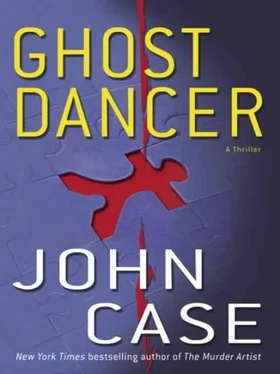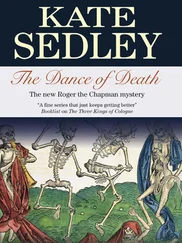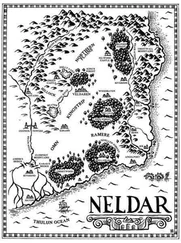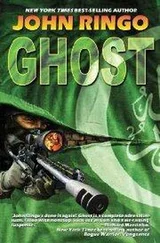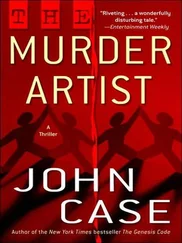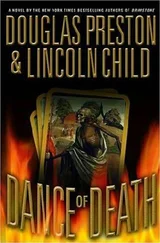So he was safe for now. The CIA, or whoever they were, might be waiting for him in Antwerp. But they wouldn’t come after him in the Congo. Not in a war zone, not with the government five hundred miles away.
Of course, if Ibrahim found out about Hakim, all bets were off. The diamonds would disappear. And so, in all likelihood, would Wilson. He’d end up at the bottom of the mine, or on a spit.
Found Hakim… get in touch.
I don’t think so.
He went to the mine in the afternoon. It was nothing like he’d imagined.
If he’d thought about it at all, he’d have expected to find a tunnel with narrow-gauge tracks leading into the earth – a sort of coal mine. Or else a mountain stripped into tiers, with massive machines clawing at the ground. Instead, he found something stranger. A landscape with the pox.
The mine was a gigantic pit, maybe two hundred yards across, dug to a depth of about thirty-five feet. This enormous hole was crisscrossed with berms of yellow earth that framed a score of smaller pits in which teams of emaciated miners stood up to their knees in stagnant groundwater, sweating under the watchful eyes of armed foremen.
In each pit was a wooden trough with a wire mesh at the bottom. Gasoline engines pumped a steady stream of water into the troughs, while diggers fed them with shovel after shovel of excavated stones, pebbles, and soil. The rushing water washed and tumbled the rocks, making the smaller stones fall through the mesh at the bottom. At the end of each trough, a boy shoveled the finer gravel into piles.
Stripped to their shorts and slaked with mud, the “shake-shake men” scooped this finer gravel into the circular wooden sieves that gave them their name. Stooping to the surface of the water, they whirled the sieves in such a way that the muck and clay sluiced to the edges, while the much heavier, diamondiferous gravel coagulated in the middle.
Somehow the shake-shake men could spot a quarter-carat diamond in the rough without fail. And when they did, they froze in place, and whistled to the foreman, who’d come running.
“How much do you pay them?” Wilson asked.
His guide laughed. He was the same man who’d driven them from the airstrip in the Mercedes. “Well,” he said, “the ones we pay get sixty cents a day, American. And food. The others just get food.”
“The others?” Wilson asked.
The driver grinned. “There are some we don’t pay.”
“Why not?”
A shrug. “Bad boys. Lugbara people. Prisoners of war.”
“But you feed them.”
The driver nodded. “Of course. They have to eat. So, two cups of rice a day. Cassava, sometimes. I’m telling you, man, that’s Easy Street you’re looking at.”
An hour later, Commander Ibrahim was seated at a card table outside a concrete hut in a compound at the mine. It was here that the diggers and shake-shake men received their pay and rations, and it was here that punishments and rewards were meted out.
Wilson and the Mercedes driver entered the compound as Ibrahim was lecturing what looked like a family. There was an older man, who might have been in his forties; his wife, who seemed about the same age; and a young mother with three children: two boys, about ten, and a girl who couldn’t have been more than five. The family looked terrified.
Belov was nearby, leaning against the compound’s wall.
Wilson joined him. “I thought you’d be gone by now,” he said. “I thought you’d be heading back to Sharjah.”
Belov shook his head, and nodded toward Ibrahim. “Commander Ibrahim isn’t happy, so… I’m still here.”
“What’s the problem?”
“Problem is bullshit!” Belov said in a low voice. “He makes argument over RPGs.”
“Why?” Wilson asked.
“He wants Russian RPGs. But I don’t have. So I give him Chinese. Is perfect copy! No difference. Good weapon.”
“So?”
“So it’s up to Hakim,” Belov told him.
Wilson looked skeptical. “And how does that work?”
“Easy. He calls him on phone.”
Wilson felt his heart lurch. He glanced around. “Hakim?”
“Yeah.”
“He can do that?” Wilson asked.
“Why not?”
“From here?”
Belov shrugged. “With satellite phone? Yeah!” Belov looked at him. “What’s the matter? Is there problem?”
“No, I-” Before Wilson could could finish the sentence, a militiaman came into the compound, dragging a boy by the hair. The boy was naked, and he’d been badly beaten.
Seeing him, the family cringed. The little girl moved toward the boy with open arms outstretched, but was quickly captured by the older man, who clutched her to his chest. The mother burst into tears, and soon, the whole family was keening.
“What’s this ?” Wilson asked. The boy couldn’t have been more than thirteen.
Belov shook his head. “Bad shit,” he muttered. “They say he steals diamond, so… he’s fucked.”
The grandfather – if that’s who he was – appealed to Commander Ibrahim. Wilson couldn’t make out a word of what he was saying – he was speaking Swahili, or something like it. But he was pleading hard in a low, tremulous voice.
Ibrahim adopted a judicious pose, frowning thoughtfully as the grandfather spoke. Occasionally, he looked at the others in the compound – at Wilson and Belov, at the soldiers, at the boy – and nodded, as if to say, Good point. It seemed, almost, as if he’d been persuaded by the older man’s speech, but then he grew bored with the charade, shook his head, and clapped his hands twice, in rapid succession.
Turning to the soldier at his side, he said, “Get on with it.”
With a grin, the soldier went into the pink building, and emerged, a few seconds later, with a jerry can of gasoline in one hand and a tire in the other.
Seeing this, the family let out a wail, the mother screamed, and the boy staggered where he stood. It seemed to Wilson that his knees buckled. But they didn’t give way. The boy just stood there, swaying in the courtyard. It was almost as if he was listening to music that no one else could hear.
Moving quickly to his side, the soldier slipped the tire over the boy’s head, then dragged his right arm through the hole at its center. Finally, he lashed the boy’s wrists together behind his back, using a plastic zip-tie. Then he filled the tire’s hollow core with gasoline, splashing it liberally over the boy himself, who was quaking to his family’s screams and pleas.
Wilson couldn’t believe what he was seeing.
Ibrahim patted the air with his hands, and made a shhh -shing sound. “Nothing is decided,” he said. Then he turned to Wilson. “Did Belov tell you?”
“Tell me what?” The air was heavy with the smell of gasoline. It felt like the compound might explode.
“About the cargo,” Ibrahim said.
Wilson did a double take. Was this supposed to be a threat? The boy who’d taken the diamond was standing ten feet away, quivering, his hands cuffed to a tire drenched in gasoline. The kid was about to go off like a Roman candle and Ibrahim picks this very moment to bitch about the cargo? “Yeah,” Wilson said. “He told me. You’ve got a problem with the RPGs.”
“No! You’ve got a problem with the RPGs.” He stared hard at Wilson.
“So why don’t you call Hakim?” Belov asked.
“I did!” Ibrahim said.
Wilson felt his jaw drop.
“And?!” Belov demanded.
“He wasn’t there.”
Wilson realized that he wasn’t breathing. So he took a deep breath. Let it out.
Commander Ibrahim reached into a bag that was lying on the ground at his feet, and retrieved a satellite phone. “They said he’d be back in an hour.” He consulted a scrap of paper, and punched a series of numbers into the phone.
Читать дальше
